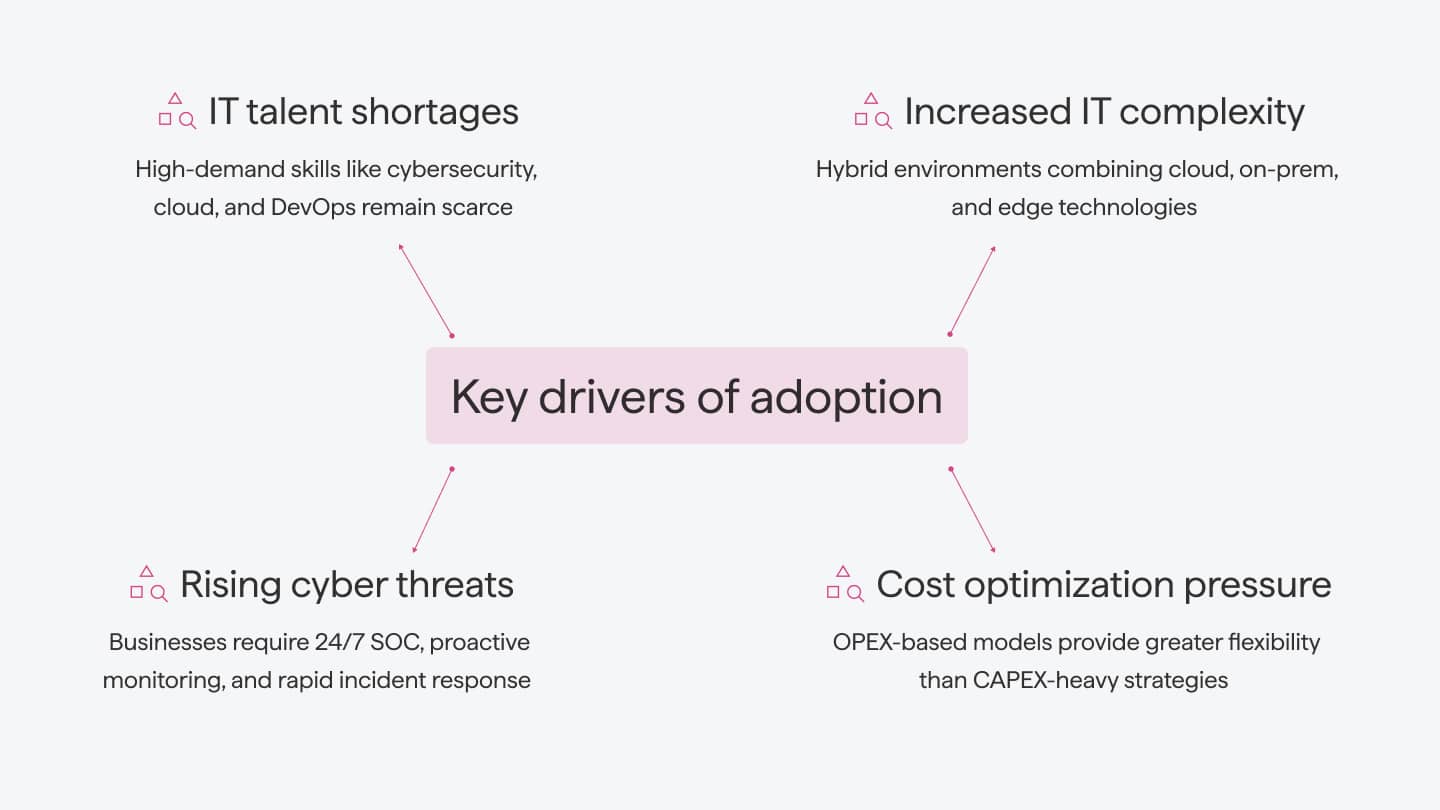Managed Services: why more companies are shifting to the MS model

In a world where technology evolves faster than ever, organizations of all sizes face the same challenge: how to stay secure, efficient, and innovative without skyrocketing costs or talent shortages. Increasingly, the solution lies in Managed Services (MS) - outsourcing the management of selected or even all IT functions, including infrastructure, cybersecurity, data, networks, and applications.
The rise of Managed Services
According to the Gartner Market Guide for Managed Services (2024), “by the end of 2025, over 60% of medium and large enterprises will be using managed services in at least one IT area - up from 38% in 2022.”
IDC predicts that the global managed services market will exceed $400 billion by 2026, growing at a CAGR of 11.2%.
Key drivers of adoption

Managed services vs. traditional outsourcing
A common misconception is that Managed Services are just another form of outsourcing. In reality, MS goes far beyond delegating tasks. It is a strategic partnership providing access to:
- Specialized expertise and knowledge
- Best-in-class tools and automation
- Industry best practices
- Scalable and adaptive support
By leveraging managed services, businesses can focus on strategic priorities rather than day-to-day IT firefighting.
Business benefits of the MS model
Organizations adopting the MS approach gain multiple competitive advantages:
- Faster response to market changes
- Accelerated adoption of emerging technologies like AI, IoT, and edge computing
- Enhanced security and compliance through continuous monitoring
- Optimized operational costs and resource allocation
- Greater focus on core business innovation rather than infrastructure management
In essence, managed services are no longer optional. For companies aiming to remain agile, secure, and competitive, the MS model is a strategic necessity.
Managed Services in business
How do Managed Services improve operational efficiency?
MS handle routine IT management, allowing internal teams to focus on high-value strategic projects. Automation, monitoring, and standardized processes reduce downtime and boost overall efficiency.
Are Managed Services cost-effective compared to in-house teams?
Yes. OPEX-based MS models convert fixed IT costs into predictable operational expenses, reducing CAPEX requirements and providing flexible scaling according to business needs.
Can small or medium businesses benefit from MS?
Absolutely. MS models are scalable and adaptable. Even smaller organizations can access enterprise-level expertise, tools, and cybersecurity capabilities without hiring large internal teams.
How do MS help mitigate security and compliance risks?
MS offer 24/7 monitoring, proactive threat detection, and regulatory compliance support. This reduces the likelihood of breaches, ensures audit readiness, and strengthens overall cybersecurity posture.
What should companies consider when choosing an MS partner?
Businesses should evaluate MS based on industry experience, technical expertise, security standards, SLA transparency, and the ability to align services with strategic business goals. The right partner acts as an extension of the internal team, not just a service provider.



